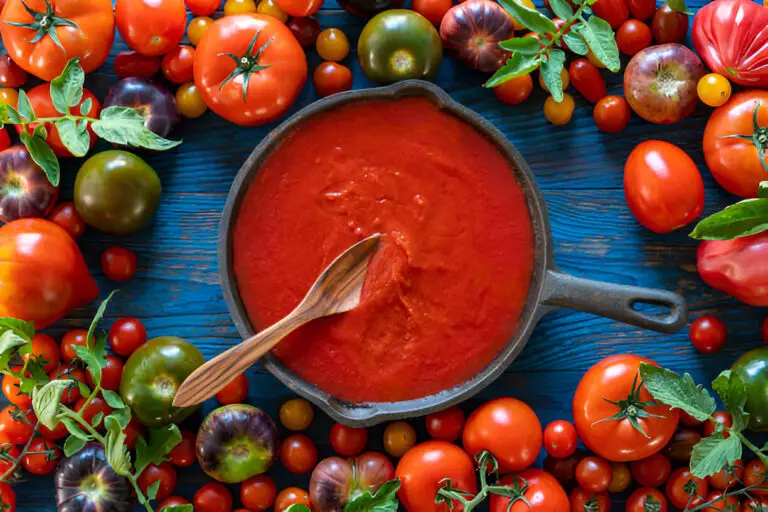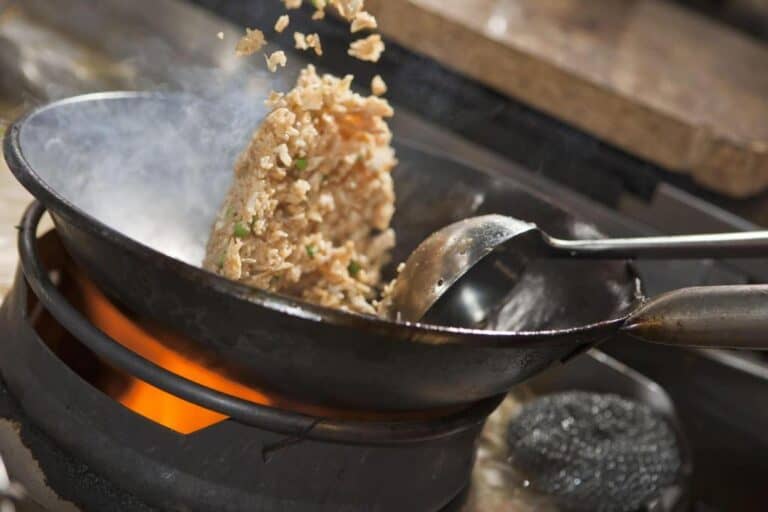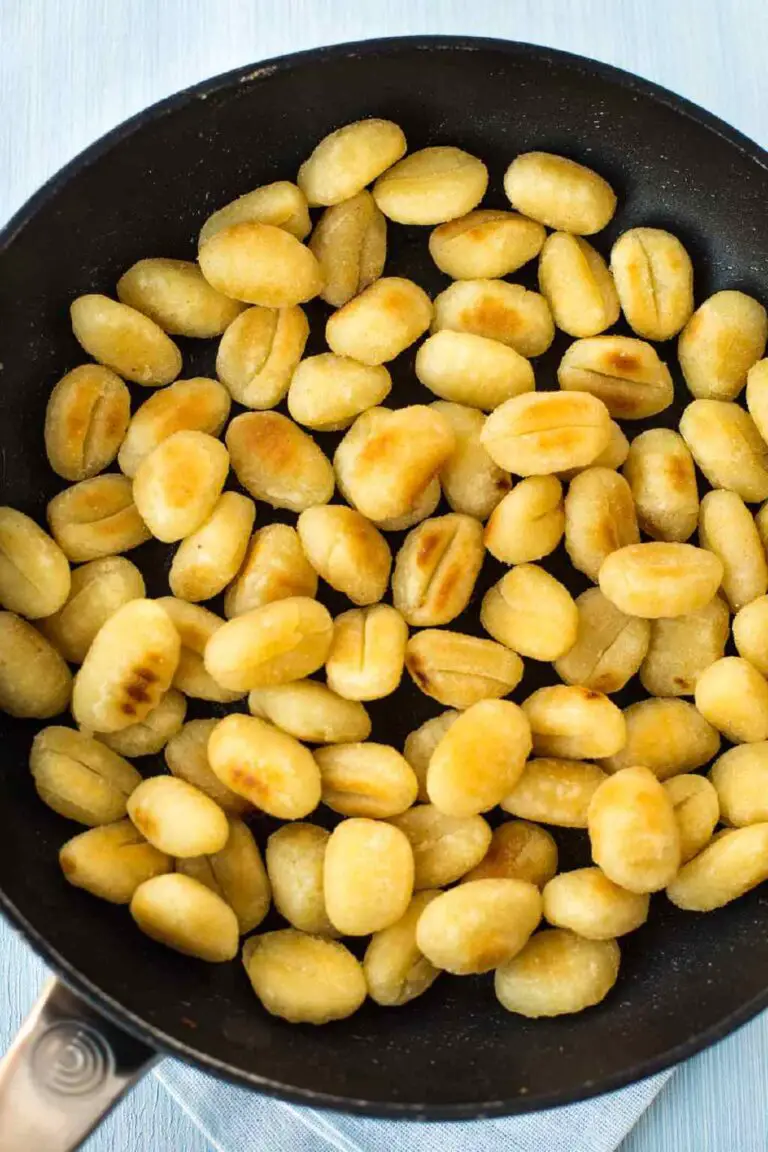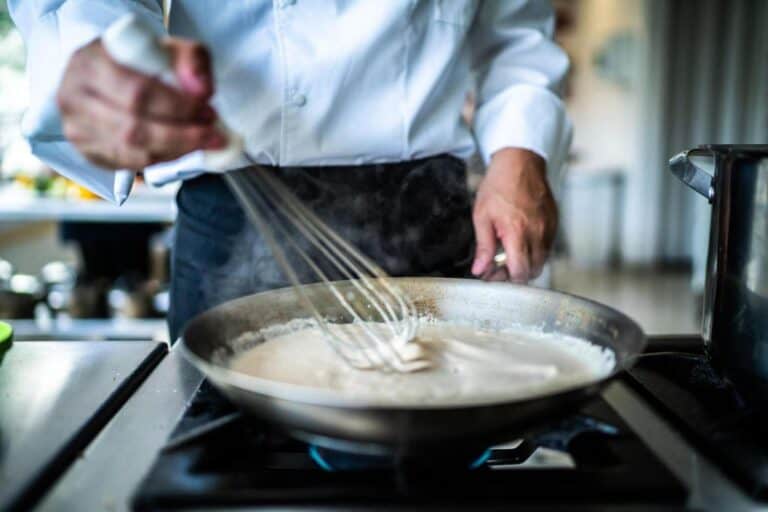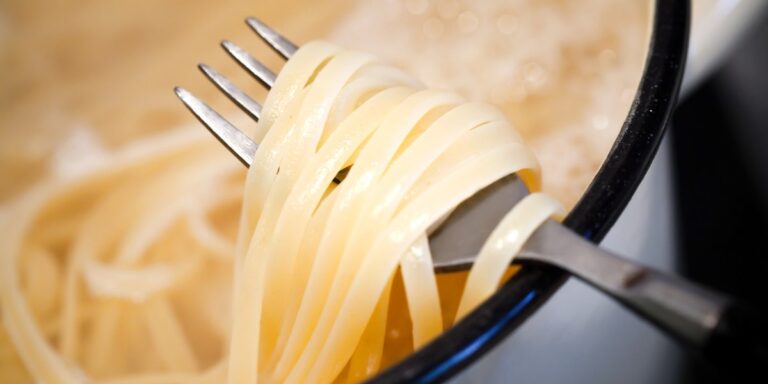Does Curry Paste Need to Be Cooked? Expert Tips and Tricks
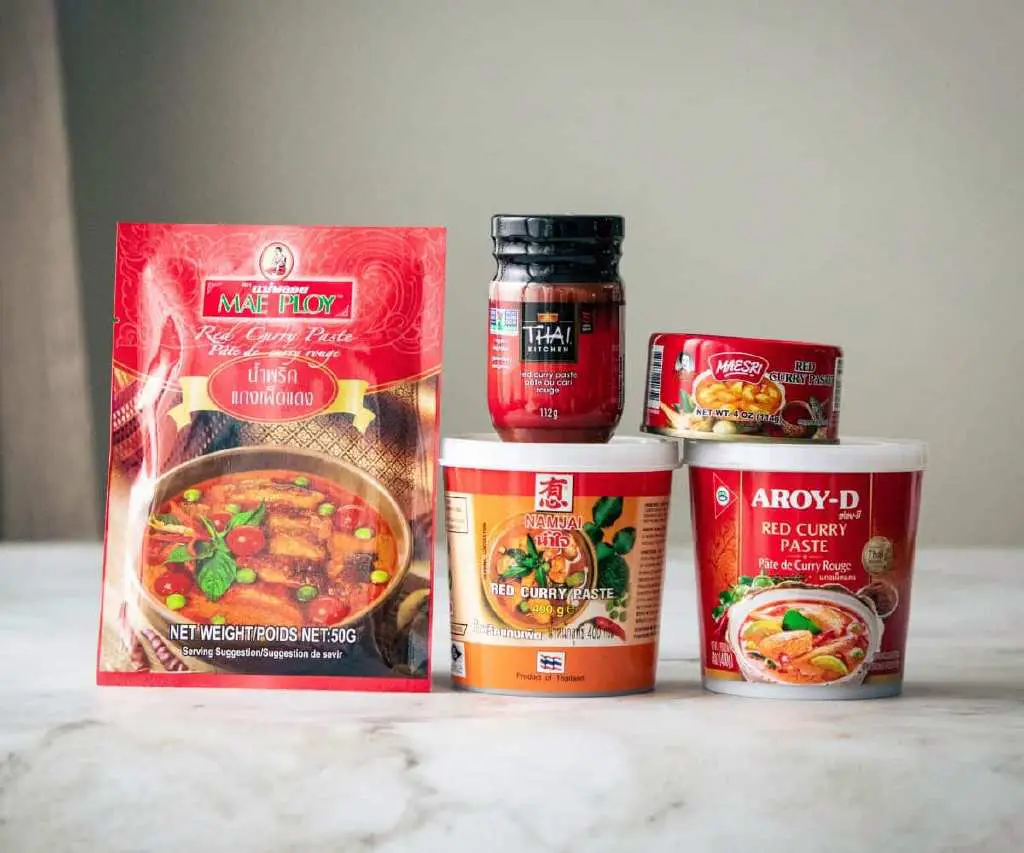
Curry paste is a staple in many cuisines, particularly in Thai, Indian, and Malaysian cooking. This mix of spices, herbs, and aromatics smells great. It is key to many dishes. It gives them depth, flavor, and complexity.
Have you ever wondered if cooking curry paste is really necessary for your favorite dishes? Many home cooks question whether this step can be skipped to save time, but the answer might surprise you.
In this article, we’ll dive deep into the world of curry paste. We’ll explore why cooking it enhances curry’s flavors. It can elevate your meals to new heights. By the end, you’ll understand how this simple technique can transform your cooking. It ensures you serve the most flavorful and authentic dishes.
What is Curry Paste?
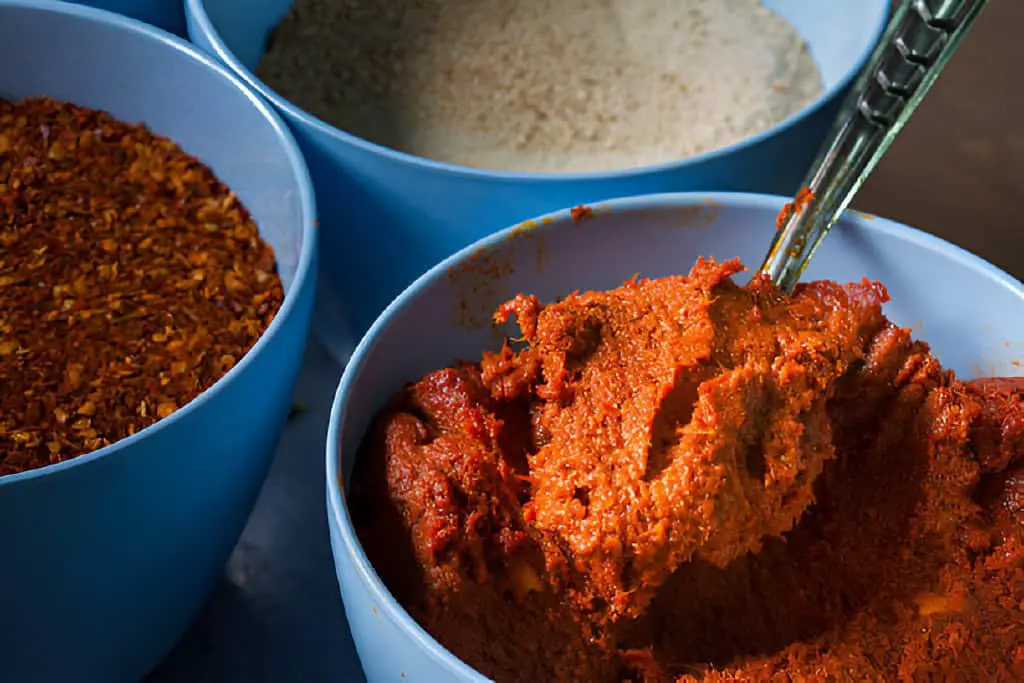
Curry paste is a concentrated mixture of spices, herbs, and other flavorings ground together into a paste. It typically includes ingredients like chili peppers, garlic, lemongrass, galangal, and turmeric. It also has shrimp paste, among others.
There are many types of curry paste. Each has its own unique flavor. For example, Thai cuisine has red, green, and yellow curry pastes. Indian cooking has masala pastes.
Common Ingredients in Curry Paste
| Ingredient | Description |
| Chili Peppers | Adds heat and color to the paste. |
| Garlic | Provides a pungent, savory base flavor. |
| Lemongrass | Adds a citrusy, aromatic note. |
| Galangal | Similar to ginger, but with a more peppery, pine-like flavor. |
| Turmeric | Provides a warm, earthy flavor and vibrant color. |
| Shrimp Paste | Adds umami and depth to the paste, often found in Thai curry pastes. |
| Cumin and Coriander | Ground spices that add warmth and complexity. |
Does Curry Paste Need to Be Cooked?
The simple answer is yes, curry paste needs to be cooked. Cooking curry paste is key to unlocking its full flavor. It also ensures the spices and aromatics mix into the dish.
Raw curry paste can taste harsh and unbalanced, as the ingredients have not had the chance to meld together and develop their flavors.
Why Cooking Curry Paste is Important
- Flavor Development: Cooking curry paste helps to release the essential oils in the spices and herbs, enhancing their flavors and aromas. This process creates a more cohesive and flavorful base for your curry or other dishes.
- Texture Improvement: Raw curry paste can have a gritty texture due to the ground spices and herbs. Cooking the paste helps to break down these components, resulting in a smoother and more palatable texture.
- Reduction of Harshness: Some ingredients in curry paste, like raw garlic and onions, can taste harsh or overpowering when uncooked. Cooking mellows these flavors, making the paste more balanced and enjoyable.
What Are the Uses of Curry Paste?
Curries
Well, of course, the most common use of curry paste is to make curry. Just fry a little bit of curry paste in a pan with some oil to pop out the flavors. Then add your desired meat and vegetables. Add coconut milk, stock, or water to thin out the consistency of the curry.
Soup
Yes, you read that right. You can use curry paste to make soup. You can add cream or coconut milk to make cream based soups. The milk or cream adds smoothness and richness to the curry paste.
Pasta
You can use curry paste to make pasta sauce. Pick whichever type of Thai curry you like best, and just add cream to it. Let it simmer for a while, then pour it over spaghetti or any type of paste that you prefer. You can also add vegetables and protein according to your liking.
Salad dressing
If you are bored of eating the same bland salad everyday, try making a salad dressing of curry paste to give it a kick. Add curry paste in yogurt or mayonnaise and give a little stir until fully combined. Then pour it over your salad, reducing the acidity in salad dressing and giving it more flavor.
Marinate
Use curry paste as a marinade for chicken. Add curry paste to some curry paste, then add your chicken to it. Coat all the chicken evenly and leave it in the fridge overnight.
Seafood
Curry paste adds a bunch of flavor to seafood. Either marinate the seafood in it or use it to make the sauce served with the seafood. It goes well with salmon.
How to Cook Curry Paste
Cooking curry paste is a straightforward process, but it requires attention to detail to ensure optimal results. Here are some expert tips and tricks to guide you through the process.
Step-by-Step Guide to Cooking Curry Paste
- Heat Oil in a Pan: Start by heating a small amount of oil in a pan over medium heat. Oil helps to distribute heat evenly and prevents the paste from sticking to the pan.
- Add the Curry Paste: Once the oil is hot, add the curry paste to the pan. Stir continuously to prevent it from burning.
- Cook Until Fragrant: Cook the paste for 2-3 minutes, or until it becomes fragrant. This indicates that the spices and aromatics have released their essential oils and flavors.
- Add Liquid: Depending on your recipe, you may need to add liquid, such as coconut milk, broth, or water, to the cooked curry paste. This helps to create a sauce and further infuses the flavors.
- Simmer: Allow the mixture to simmer for a few minutes to let the flavors meld together and the sauce to thicken.
Expert Tips for Cooking Curry Paste
- Use Fresh Ingredients: Fresh ingredients will yield the best flavor. Ensure your spices are not too old, as they can lose their potency over time.
- Adjust Heat Levels: If you prefer a milder curry, use less chili paste or opt for a milder variety. Conversely, add more chili paste or fresh chilies for a spicier dish.
- Balance Flavors: Taste the curry as it cooks and adjust the seasoning as needed. Add a touch of sugar, lime juice, or fish sauce to balance the flavors.
| Read: The Secret Why Restaurant Curry Tastes Better |
Common Mistakes to Avoid When Cooking Curry Paste
Cooking curry paste is an art that requires some finesse. Here are common mistakes to avoid to ensure your curry paste is cooked to perfection.
- Burning the Paste: Cooking curry paste over high heat or not stirring it enough can cause it to burn. Burnt paste will impart a bitter flavor to your dish. Always cook on medium heat and stir frequently.
- Skipping the Cooking Step: Adding raw curry paste directly to a dish without cooking it first can result in a harsh, unbalanced flavor. Always cook the paste to develop its full flavor potential.
- Using Too Little Oil: Oil is crucial for distributing heat and preventing the paste from sticking to the pan. Using too little oil can cause the paste to burn. Use enough oil to cover the bottom of the pan lightly.
Enhancing Your Dishes with Curry Paste
Curry paste is incredibly versatile and can be used in a variety of dishes beyond traditional curries. Here are some ideas to inspire you.
Dishes That Benefit from Curry Paste
- Soups: Add a spoonful of curry paste to soups for an instant flavor boost. It works particularly well in coconut-based soups or broths.
- Stir-Fries: Incorporate curry paste into stir-fries for a quick and easy way to infuse flavor. Add it at the beginning of cooking to allow the flavors to develop.
- Marinades: Use curry paste as a base for marinades. Combine it with yogurt or coconut milk to marinate meats, tofu, or vegetables.
- Dips and Sauces: Mix curry paste into dips or sauces for a unique twist. It pairs well with mayonnaise, yogurt, or sour cream.
Recipe: Thai Red Curry Chicken
| Ingredient | Quantity |
| Chicken breast, sliced | 1 lb |
| Thai red curry paste | 2 tbsp |
| Coconut milk | 1 can |
| Fish sauce | 1 tbsp |
| Sugar | 1 tsp |
| Vegetables (e.g., bell peppers, snap peas) | 2 cups |
| Fresh basil leaves | 1/4 cup |
| Lime juice | 1 tbsp |
Instructions:
- Heat oil in a pan over medium heat.
- Add the red curry paste and cook until fragrant.
- Add the chicken and cook until no longer pink.
- Pour in the coconut milk and bring to a simmer.
- Add fish sauce, sugar, and vegetables. Cook until vegetables are tender.
- Stir in fresh basil leaves and lime juice before serving.
Conclusion
In conclusion, curry paste is a flavorful and versatile ingredient that requires cooking to unlock its full potential. Whether you’re making a traditional curry or trying new dishes. Cooking the paste right ensures a balanced, aromatic result.
Follow expert tips and avoid common mistakes. Doing so can elevate your cooking and let you enjoy the rich flavors of curry paste. Happy cooking!

